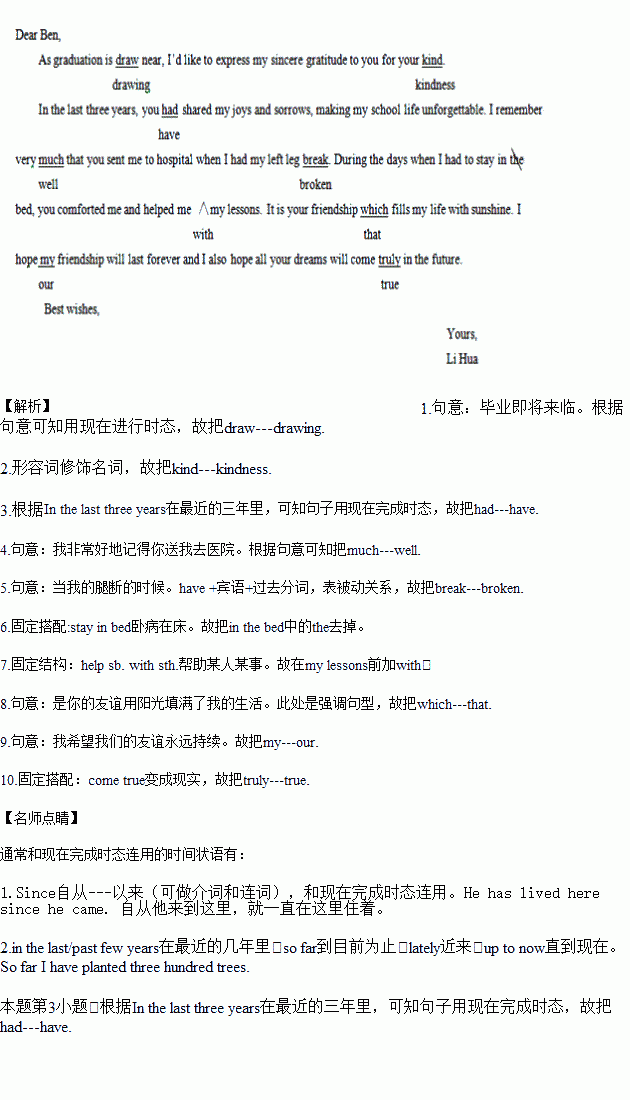题目内容
假定英语课上老师要求同桌中间交换修改作文,请你修改你同桌写的以下作文。文中共有10处语言错误,每句中最多有两处,每处错误仅涉及一个单词的增加、删除或修改。
增加:把缺词处加个漏字符号(∧),并在其下面写出该加的词。
删除:把多余的词用斜线(\)划掉。
修改:在错的词下划一横线,并在该词下面写出修改后的词。
注意:1. 每处错误及其修改均仅限一词;
2. 只允许修改10处,多者(从第11处起)不计分。
Dear Ben,
As graduation is draw near, I’d like to express my sincere gratitude to you for your kind.
In the last three years, you had shared my joys and sorrows, making my school life unforgettable. I remember very much that you sent me to hospital when I had my left leg break. During the days when I had to stay in the bed, you comforted me and helped me my lessons. It is your friendship which fills my life with sunshine. I hope my friendship will last forever and I also hope all your dreams will come truly in the future.
Best wishes.
Yours,
Li Hua
 天天向上一本好卷系列答案
天天向上一本好卷系列答案 小学生10分钟应用题系列答案
小学生10分钟应用题系列答案
